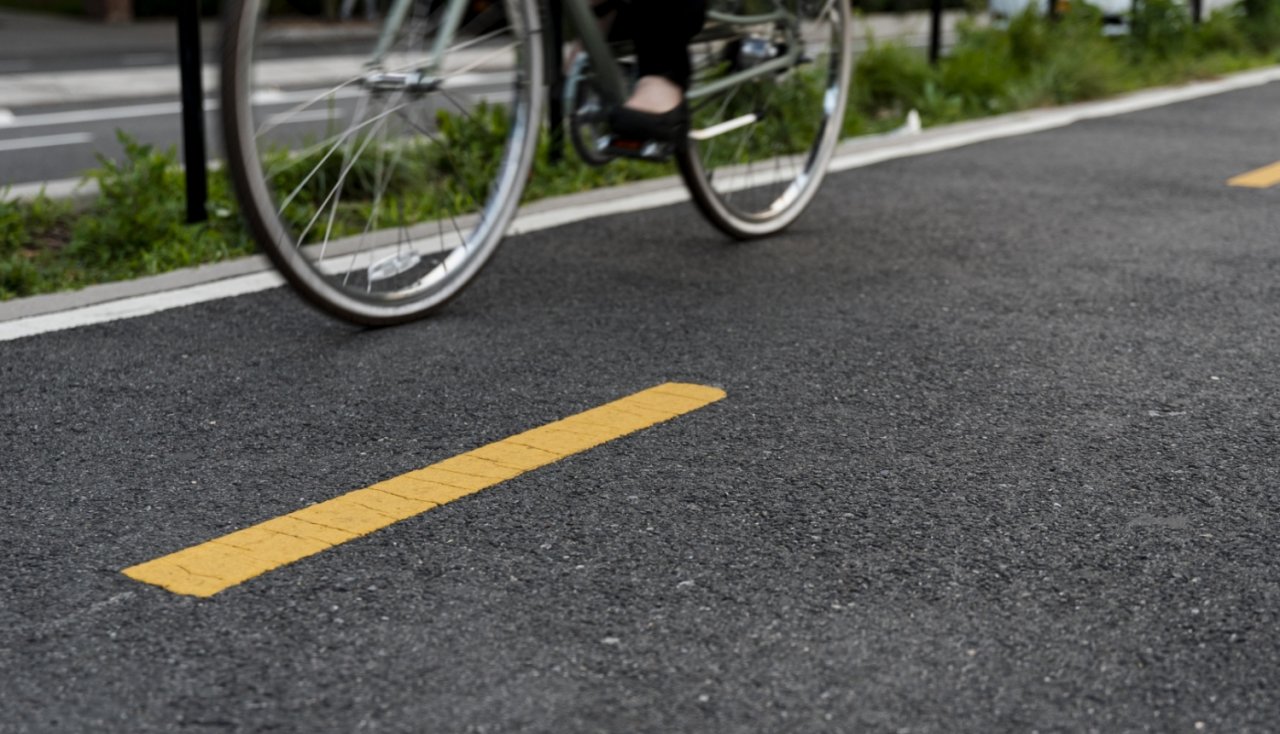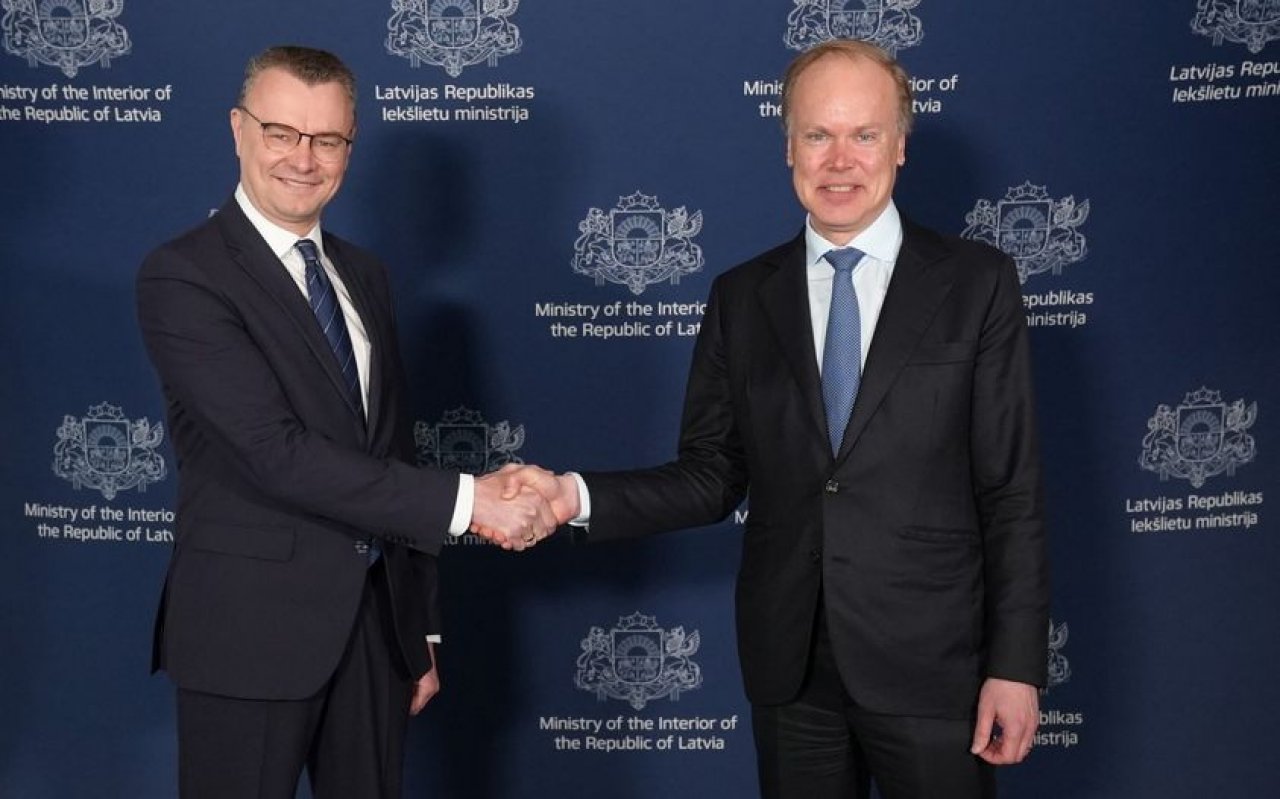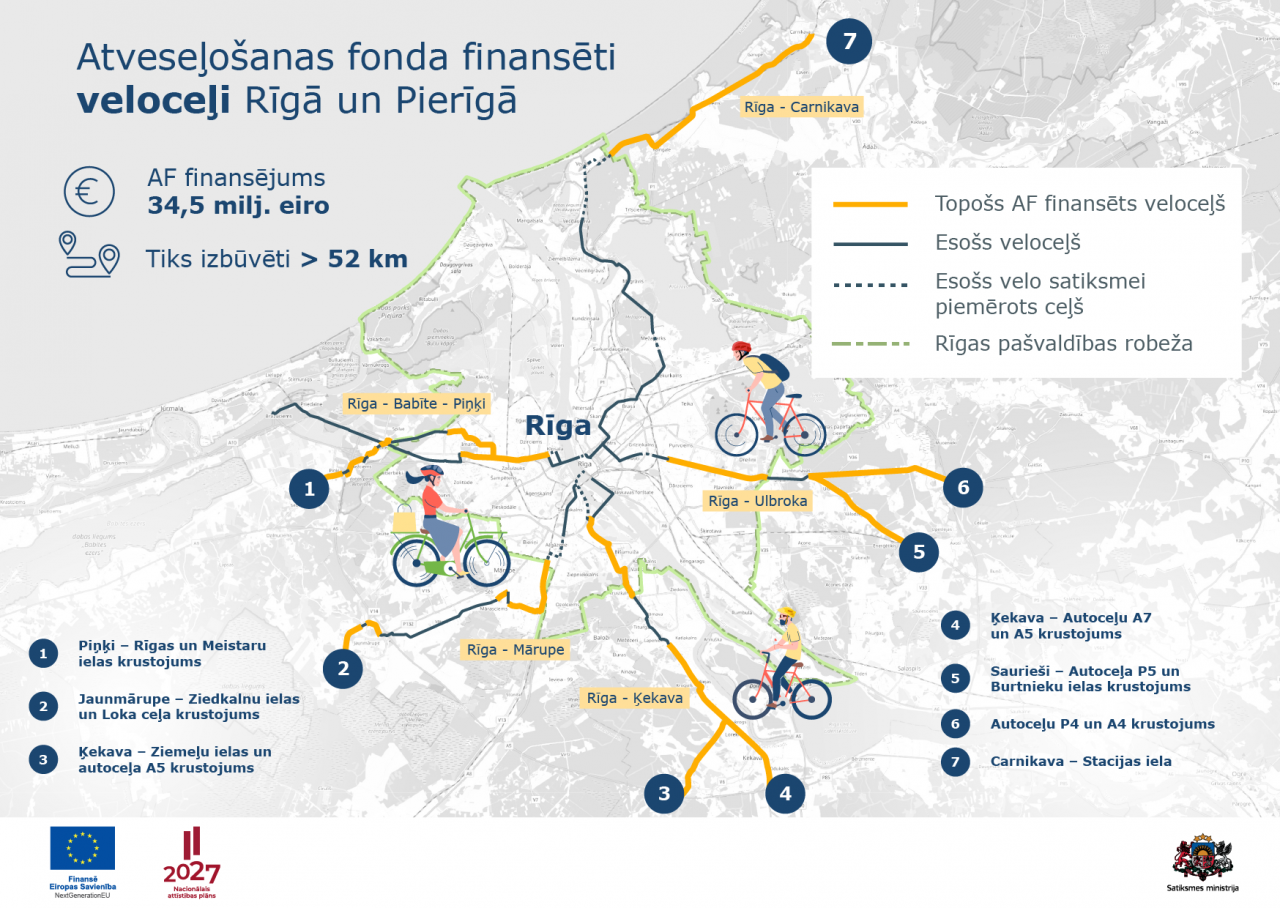On February 7, the government approved the Cabinet regulations prepared by the Ministry of Transport, which determine the procedure for allocating and supervising the Recovery and Resilience Facility for the development of the cycling infrastructure in the metropolitan area of Riga.
The reduction of GHG emissions in the transport sector requires significant investment in infrastructure and, at the same time, reforms that would stimulate changing passenger habits and switching to more environmentally friendly transport solutions, including cycling. Cycling is one of the fastest-growing alternatives for motor vehicles in the capital. The infrastructure for the Riga metropolitan area has been developed in fragments due to the lack of a single cycling network. In order to ensure green mobility and to create pre-conditions for the development of urban and neighbourhood connections, a single bicycle infrastructure is needed.
“Riga and Pieriga are subject to very high transport intensity in Latvia, so it is particularly important to create safe and convenient conditions for people who cycle. One of my priorities in taking up the position of Minister of Transport is the development of micro-mobility throughout Latvia. “People need this infrastructure not only to reach a certain destination, but also to safely spend time with family and friends,” said Jānis Vitenbergs, Minister of Transport.
In accordance with the provisions prepared by the Ministry of Transport, it is planned to develop the infrastructure of main cycle paths by May 31, 2026 - to build or restore at least 60 km of cycle paths in Riga and Pierīga. By developing the bicycle path infrastructure in Riga metropolitan area, the availability of "green" mobility between settlements will be ensured and prerequisites for the development of transport connections will be created. This will contribute to the improvement of both the environment and the quality of life for the population of the region.
Recovery and Resilience Facility financing in the amount of 34.5 million euros is planned for the development of five priority bicycle routes: Riga - Carnikava, Riga - Ulbroka, Riga - Ķekava, Riga - Babīte - Pinķi, Riga - Mārupe. Financial resources will be allocated to the municipalities for the development of bicycle infrastructure – Riga City municipality, the municipalities of Ropaži parish, Ķekava parish, Mārupe parish and Ādaži parish.
The development of cycling infrastructure is one of the set of measures implemented by the Ministry of Transport within the green transport system transition reform of the Riga metropolitan area. It is planned to invest a total of 295 million euros under the Recovery and Resilience Facility for the implementation of these measures. The aim of the reform is to reduce the negative impact of transport on the quality of the capital's environment and to create integrated public transport services that meet the needs of citizens. It is expected that the implemented reform will make a positive contribution to the achievement of European Green Deal goals.


